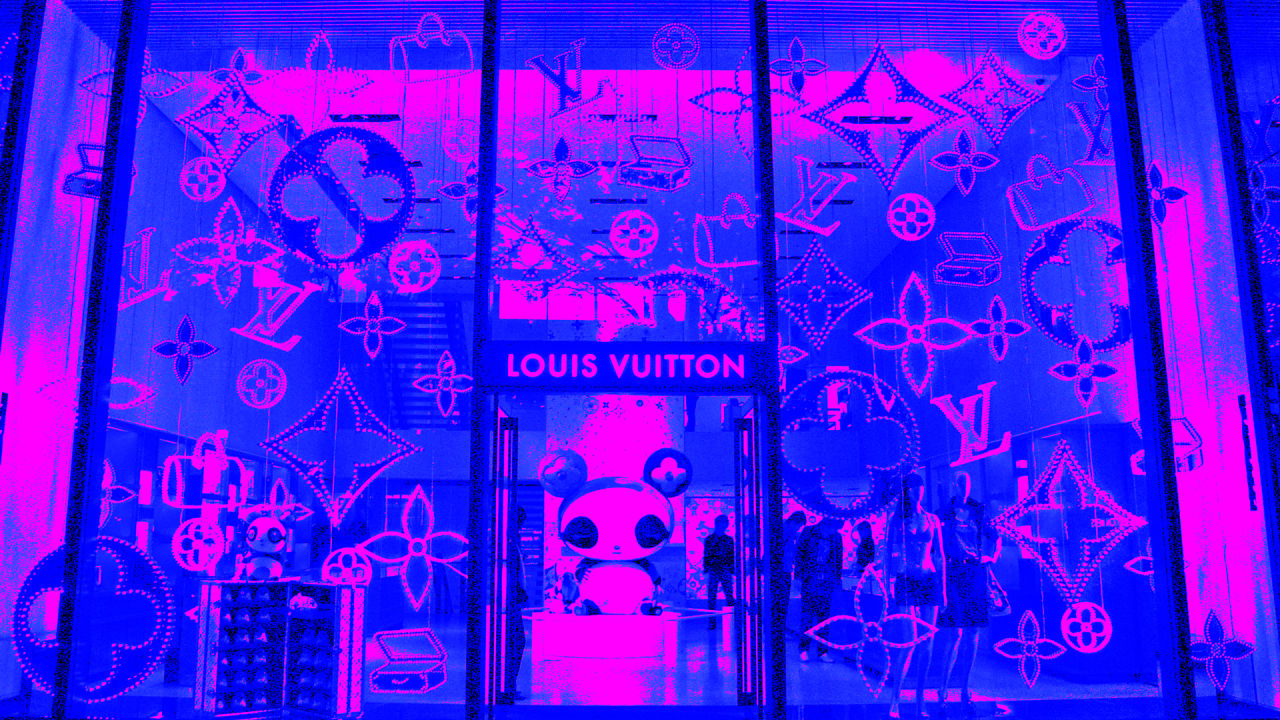LVMH, Kering, and Zegna lead a list of luxury giants that are growing their retail footprint
In the face of economic uncertainty, such as consumer caution due to inflation, luxury retail has remained resilient in the U.S market, according to a new report from JLL. In 2023, luxury retail sales reached over $75 billion, with an annual growth rate of 8.6% from 2020 to 2023, the report finds. In the United States, luxury sales are expected to have an annual growth rate of 1.9% from 2024 to 2028, bringing them to $82 billion by the end of 2028. Major luxury conglomerates saw growth in revenue as well as an increase in storefronts in 2023, JLL reports. French conglomerate LVMH—whose brands include Louis Vuitton, Dior, Fendi, Tiffany & Co, Loewe, and Bulgari—saw revenues increase 10% in 2023 to about $95.1 million, compared to $85.5 million the year before. On top of that, the group went from 5,664 stores open in 2022 to 6,097 stores in 2023, an incrase of 7%. Other groups, such as Richemont (Cartier, Van Cleef), Prada, and Zegna, saw a similar increase in revenue as well as store growth. Even with the amount of shoppers in malls declining, luxury brands continue to see their store growth at malls and in prime corridors. About half of the new luxury stores that opened from July 2023 to July of this year opened in malls, the report says. New York’s Madison Avenue and Los Angeles’s Beverly Hills continue to be the hotspots for luxury stores, with both markets combined accounting for about 36.9% of new luxury store openings from July 2023 to July 2024. Although e-commerce's share of total retail sales rose to 16% in the second quarter this year, it still remains lower than the pandemic high of 16.4% in 2020. This indicates the importance of in-store experiences for luxury brands and with a shortage of desirable retail space, brands have started expanding within existing stores. “Malls that strategically optimize their tenant mix to offer the best-in-class retail remain enticing to luxury brands who are seeking high quality space,” JLL reports, “with the best malls including an array of luxury brands in their roster.”

In the face of economic uncertainty, such as consumer caution due to inflation, luxury retail has remained resilient in the U.S market, according to a new report from JLL.
In 2023, luxury retail sales reached over $75 billion, with an annual growth rate of 8.6% from 2020 to 2023, the report finds. In the United States, luxury sales are expected to have an annual growth rate of 1.9% from 2024 to 2028, bringing them to $82 billion by the end of 2028.
Major luxury conglomerates saw growth in revenue as well as an increase in storefronts in 2023, JLL reports.
French conglomerate LVMH—whose brands include Louis Vuitton, Dior, Fendi, Tiffany & Co, Loewe, and Bulgari—saw revenues increase 10% in 2023 to about $95.1 million, compared to $85.5 million the year before. On top of that, the group went from 5,664 stores open in 2022 to 6,097 stores in 2023, an incrase of 7%.
Other groups, such as Richemont (Cartier, Van Cleef), Prada, and Zegna, saw a similar increase in revenue as well as store growth.
Even with the amount of shoppers in malls declining, luxury brands continue to see their store growth at malls and in prime corridors. About half of the new luxury stores that opened from July 2023 to July of this year opened in malls, the report says.
New York’s Madison Avenue and Los Angeles’s Beverly Hills continue to be the hotspots for luxury stores, with both markets combined accounting for about 36.9% of new luxury store openings from July 2023 to July 2024.
Although e-commerce's share of total retail sales rose to 16% in the second quarter this year, it still remains lower than the pandemic high of 16.4% in 2020. This indicates the importance of in-store experiences for luxury brands and with a shortage of desirable retail space, brands have started expanding within existing stores.
“Malls that strategically optimize their tenant mix to offer the best-in-class retail remain enticing to luxury brands who are seeking high quality space,” JLL reports, “with the best malls including an array of luxury brands in their roster.”






















